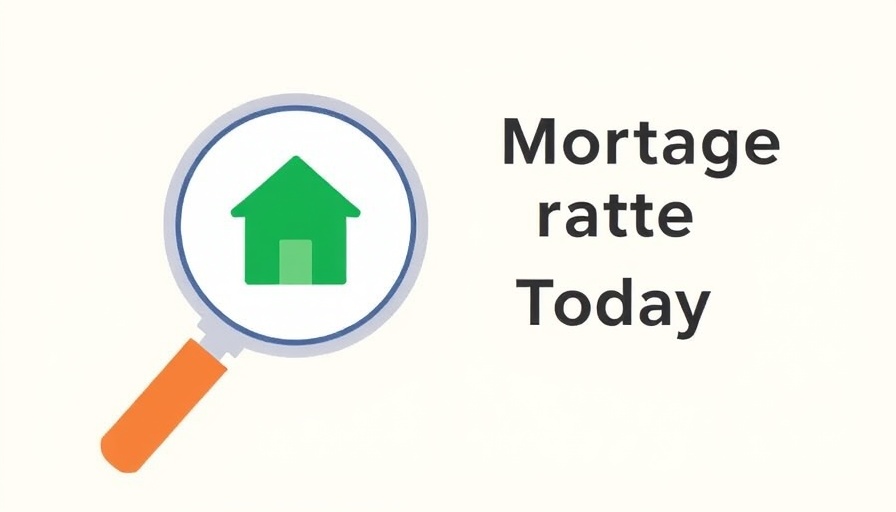
Rising Mortgage Rates: A Curveball for Spring Buyers
The spring housing market usually marks an uptick in buyer activity, with many aspiring homeowners looking to stake their claim before summer arrives. However, recent events have turned this season into a nail-biter for those hoping to buy or sell a home. As of mid-April 2025, the average rate on a 30-year fixed-rate mortgage has surged to 6.97%, climbing 11 basis points from the previous week. This increase has shocked many and is likely to stifle demand just as inventory levels are beginning to rise.
Understanding the Impact of Rising Rates
The timing of this rate hike could not be more detrimental. With home-buying activity typically peaking during the spring, the question looms: will rising mortgage rates deter potential buyers? Many experts warn that higher rates can lead to increased monthly payments, forcing buyers to reconsider their budgets and financial commitments. The National Association of Realtors has noted a direct correlation between rising mortgage rates and slowing sales velocity—a trend small business owners and investment-savvy individuals need to monitor closely.
Inventory Pressure: A Double-Edged Sword
While the inventory of available homes is increasing, which might appear advantageous at first glance, the pressure of rising rates juxtaposes this beneficial trend. Homeowners who wish to upgrade may feel reluctant to sell at these higher mortgage rates, fearing they will end up trading one high-interest mortgage for another. For small business owners looking to leverage property investments as financial security, this standoff presents a unique challenge. Thus, the blessing of more inventory could transform into a curse if buyer's financial feasibility is affected.
Future Trends: What Lies Ahead?
As we look beyond the present, the key question is: where are mortgage rates heading? The ongoing economic narrative is shaped by various forces, including inflation, employment rates, and Federal Reserve policies. If inflation persists, further tightening from the Fed could mean additional rate hikes. Entrepreneurs and small business managers should be prepared to adjust their strategies accordingly, whether they are considering real estate investments, commercial spaces, or personal residences.
Navigating Investments in a Volatile Market
Now, more than ever, savvy investors must keep a close eye on market fluctuations. Those considering purchasing property should perhaps consider locking in rates sooner rather than later. Financial institutions potentially have different offerings, so understanding various mortgage options—such as adjustable-rate mortgages (ARMs)—could provide avenues for minimized long-term costs. Engaging with a loan officer who understands market trends can yield significant benefits.
Digging Deeper: Resources for Small Business Owners
For business managers and owners, understanding the interplay of mortgage rates and the economy is crucial. Several resources can aid in staying ahead of potential downturns:
Financial Webinars: Regularly scheduled online sessions focused on mortgage trends and investment strategy can prove invaluable.
Local Business Networks: Engaging with local real estate networks can provide insights into unique challenges faced within specific markets.
Consulting with Financial Advisors: Expert guidance can help clarify complex situations surrounding market forecasts and decision-making.
Final Thoughts: Preparing for What's Next
As we navigate these uncertain waters of rising mortgage rates amid an evolving housing market, it’s essential for small business owners and managers to remain informed and proactive. By assessing available options and understanding future predictions, one can better prepare for engaging the market.
This turbulent environment may represent both a challenge and an opportunity—taking full advantage requires informed strategies and revised action plans. Stay tuned for further updates, and take charge of your financial narrative amid the shifting tides.
For those ready to explore these options, reaching out to financial experts or participating in local real estate discussions could provide invaluable insights. The time to act is now—position yourself to make informed choices and prosper amidst change.
 Add Row
Add Row  Add
Add 




Write A Comment